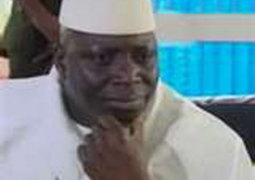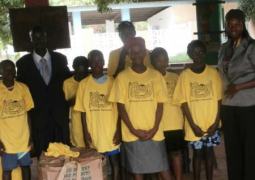The 49th ordinary session of the African Commission on Human and Peoples’ Rights (ACHPR) came to a close yesterday at the Kairaba Beach Hotel, with expressions of concern by Commissioner Musa Ngary Bittaye, acting Chairperson of the ACHPR, who said that even though elections now seem to be common place in a continent once known for paucity of pluralism, its organization is not necessarily translating into a smooth and peaceful transfer of power from the old to the new.
Commissioner Bittaye, who was speaking at the closing ceremony, noted that by the end of December this year, quite a number of countries in the continent would have gone to the polls for local and national elections. “The electoral calendar has never been so congested”.
“Even though elections now seem to be common place in a continent once known for paucity of pluralism, its organization is not necessarily translating into a smooth and peaceful transfer of power from the old to the new,” he said.
According to him, not all those who lose elections are willing to play by the rules.
“Instead of ushering in democracy and good governance, far too often elections spark off bloodshed and internal conflicts, triggering serious human rights violations, mass displacements and related calamities,” he said, citing
Reiterating the Commission’s mandate to monitor, promote and protect the rights and freedoms of the African people, Commission Bittaye stated that the challenge facing
“As we come to the end of yet another session, the Commission is mindful of the magnitude of the task ahead. We carry with us the sobering awareness that the work of upholding human dignity and democracy is never done or taken for granted – for too many people in our continent are still denied their human rights,” he stated.
In his view, the last six months have been particularly difficult as the continent witnessed a surge of tremendous popular movements for the advancement of human rights and democratic freedom on the African continent and far beyond, with the media giving special attention to the uprising in North Africa.
“However, all the sub-regions in the continent have presented disturbing human rights developments that deserved our attention as well, particularly the ongoing political crisis in Cote D’Ivoire, the military uprising in Burkina Faso, the referendum in Sudan, post elections violence in a number of African countries, the multiple challenges of poverty, internal conflicts, impunity and environmental degradation, leading to violent conflicts within and between certain groups in some countries,” he added.
He noted that it is natural and just for peoples and individuals to demand respect for their rights and freedoms, and for an end to impunity, repression, poverty, and all forms of human rights abuses.
These, he added, are the rights guaranteed in the African Charter to which all African states commit themselves.
“This is also the reason why governments should actively support such demands instead of suppressing them,” Commissioner Bittaye stated.
In a closing statement delivered on his behalf by Martins U. Okoi, Director of Civil Litigation and International Law at the Attorney General’s Chambers, Hon. Edward Gomez, Attorney General and Minister of Justice, underscored the achievements of the African Commission, which he said cannot be overemphasized as it is evident in the consciousness and awareness, which the African people now have of their fundamental human rights and their enforcement.
“Consequently, it is trite knowledge that in the modern world of today, democracy is the order of governance, and this goes with the dynamics of the operations of the rule of law, which makes for good governance,” Gomez stated.
According to him, the
This year’s human rights session, which is held every six months, was devoted to auditing the human rights situation on the continent over the past six months.
It brought together more than 450 delegates including human rights defenders, NGOs, observers, civil society representatives, state parties, national human rights institutions, as well as African Union organs with a view to review and examine the current human rights situation in Africa.
The closing session ended with delegates issuing a communiqué.



